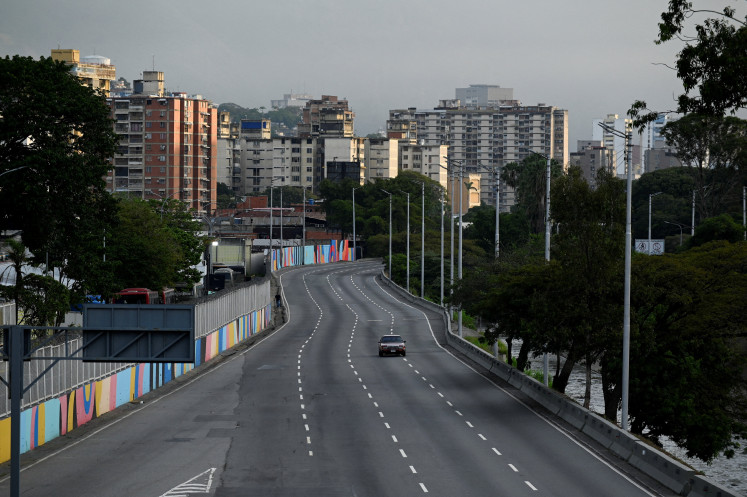Popular Reads
Top Results
Can't find what you're looking for?
View all search resultsPopular Reads
Top Results
Can't find what you're looking for?
View all search resultsILO warns of uncertain job market
Change text size
Gift Premium Articles
to Anyone
T
he global labor market is facing a highly uncertain recovery in the second half of the year amid the coronavirus pandemic, with female workers suffering disproportionately from its impact, according to a report from the International Labor Organization, or ILO.
Globally, almost 510 million, or 40%, of all employed women work in the four most-affected sectors, compared with 36.6% of men, according to statistics from the ILO
The report "ILO Monitor: COVID-19 and the World of Work: 5th Edition" shows that the number of working hours lost across the world in the first half of 2020 was significantly worse than previously estimated. It was released by the ILO on Tuesday.
Global working hours saw a 14 percent drop during the second quarter of 2020, equivalent to the loss of 400 million full-time jobs. It is a sharp increase from an estimate issued on May 27 of a 10.7 percent drop, or the loss of 305 million jobs, the report said.
The new figures also reflect the worsening situation in many regions over the past weeks, especially in developing economies in parts of the Americas, the Asia-Pacific and Africa. Countries in these regions were among those with the biggest loss of working time.
About 93 percent of the world's workers live in countries with some sort of workplace closures, with the Americas experiencing the greatest restrictions, the monitor said.
Mexico's national statistics agency INEGI said on Tuesday that 12 million people have lost their jobs since March as part of the economic fallout from the pandemic, and the number of people working in the informal sector has shot up significantly.
In Brazil, the unemployment rate rose to almost 13 percent in the March-May quarter as the effects of the pandemic saw a record 7.8 million jobs cut, according to the Brazilian Institute of Geography and Statistics.
Gender inequalities
As for women, the ILO's report highlighted the disproportionate impact on them, so much so that is feared that some of the modest progress on gender equality made in recent decades will be lost and work-related gender inequalities will be exacerbated.
The severe impact of COVID-19 on female workers relates to their overrepresentation in some of the economic sectors worst affected by the crisis, such as accommodation, food, sales and manufacturing, it said.
Globally, almost 510 million, or 40 percent, of all employed women work in the four most-affected sectors, compared with 36.6 percent of men, according to statistics from the agency.
Chen Yun, a researcher at the Chinese Academy of Labor and Social Security, said industries based on customer service "experienced the most direct and greatest impact brought by the pandemic", and would be affected for a relatively longer time.
"It will take some time for people to eliminate the psychological effects caused by the pandemic. It is difficult for such industries to recover in the short term," he said.
Women also dominate in domestic work and the health and social care sectors, where they are at greater risk of losing their income, of infection and transmission, and are less likely to have social protection.
The report notes that long-term recovery plans depend on the future trajectory of the pandemic and government policy choices.
Despite the unprecedented speed with which countries have responded with policy measures, the ILO said the future remains challenging as countries have to balance out needs in the health, economic, social and policy spheres.










